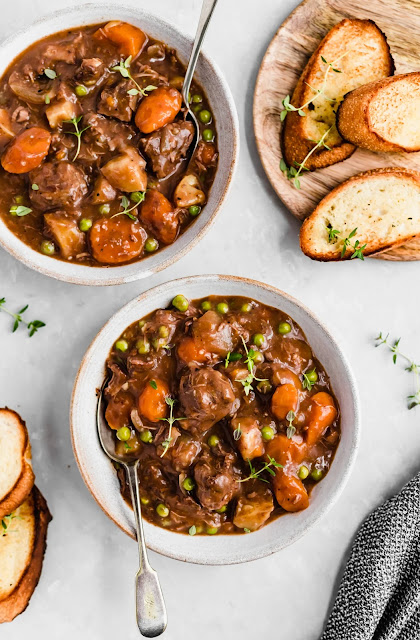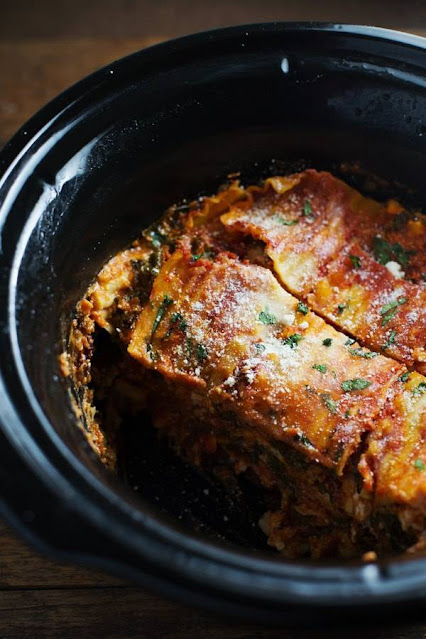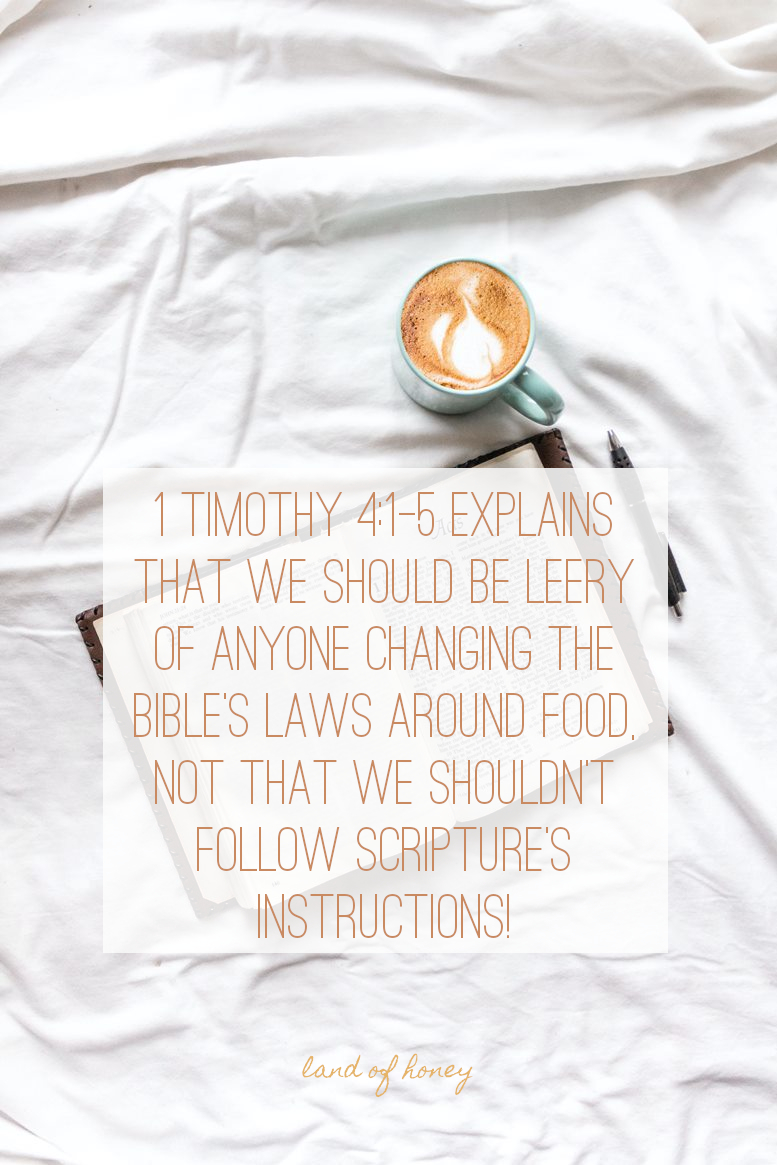What are the Bible's instructions for us around food during the week of Unleavened Bread? What exactly is leaven? We've talked before about what it means to eat 'kosher' for Passover during this time, but we've also talked about the kosher dietary laws often going above and beyond what Scripture says and even adding to it! So how do we eat in a way that honors what the Bible says without going overboard with manmade traditions? This post is here to help. Biblically clean eating for Passover and Unleavened Bread is truly doable, and this post will walk you through what you can and can't eat during these Biblical holidays.
During the week of Unleavened Bread, all the normal dietary laws apply, plus one extra, temporary restriction. What does the Bible tell us not to eat during the week of Unleavened Bread?
"Seven days you shall eat unleavened bread. On the first day, you shall remove leaven from your houses." -Exodus 12:15
That is the restriction...no leavened bread for the week. There is no specified grain to avoid, just a prohibition on leavened bread. If you're used to hearing that Unleavened Bread week means not eating any grains at all, and even that you have to avoid things like peanuts or beans, I'm here to tell you that the Living God did not make it that complicated.
To understand how to avoid leaven bread for the week we need to know what it is.
What is leaven in the Bible?
Leaven is grain that has been soured, or fermented. Sourdough bread is the most obvious example of a leavened product, hence the emphasis on this Biblical holiday being a time of unleavened bread. Leavening or souring is not something that happens immediately when water hits a grain, but a process that takes more time - typically several days. In Judaism there is a law that says bread dough becomes 'leavened' after 18 minutes of flour mixed with water and formed into dough, but this is not a directive from Scripture. If you've ever made bread, or tried your hand at sourdough starter, then you know 18 minutes is nowhere near enough time for leavening to happen or for dough to rise.
Nowadays sourdough bread is rare, and most breads are made with yeast. Though the Bible does not specify avoiding yeast-risen breads by name, I believe since yeast mimics the leavening process of traditional sourdough, we would do well to not partake during this time. The same would go for breads, cakes, or pastries made with baking soda or baking powder.
What should we avoid eating during the Feast of Unleavened Bread to eat Biblically clean?
Leavened bread products, such as:
-Sourdough bread
-Bread made with yeast
-Breadcrumbs
-Products containing breadcrumbs such as breaded chicken, meatballs, meatloaf, or tortellini fillings
-Muffins and other quick breads made with baking soda or baking powder
-Cakes
-Pastries such as croissants, cinnamon rolls, danishes, etc.
-Biscuits
-Pizza
Foods to watch for leaven in:
-Chicken strips or breaded chicken
-Batter for fried fish, onion rings, etc.
-Meatballs
-Meatloaf
-Ravioli and tortellini fillings
-Ice cream flavors with cake, cookies, etc. mixed in
Please note that the leaven mention in Exodus 12 does not mean all foods that have been soured or fermented. We see the Messiah serving wine (which is fermented) at the last supper, and tasting vinegar (also fermented) while on the cross. A surprising number of foods we eat today from yogurt to kimchi to chocolate are fermented, and we are free to eat those during Unleavened Bread. What we don't want to eat this week is fermented or leavened bread, or at the most, fermented or leavened grains.
Examples of soured grains that aren't bread:
-Beer
-Soy sauce (tamari is very similar to soy sauce, but made only with soybeans and is an easy substitution)
Can you cook and bake during Unleavened Bread?
Yes, absolutely you can make your own unleavened baked goods and meals for or during this Biblical holiday. I've heard too many times that the only way to be sure you're not eating leaven is to purchase all specially made and kosher certified matzah and kosher for Passover products, but the Bible does not say that only a rabbi can tell if something is leavened or not. Furthermore these products can be very difficult to find and expensive. Use your judgment. You can make your own unleavened bread in many different forms, and there are probably plenty of meals that you already make that are unleavened and would be appropriate during this feast. Take a look at recipes - if they use grains, check and see if making the dish involves souring or fermenting dough. If it doesn't - I see no reason why you can't make it as part of your Unleavened Bread meals and celebrations.
Can you eat grains during Unleavened Bread?
Jewish traditions call for avoiding all grains, except for kosher for Passover matzah, and sometimes even things like beans, legumes, and peanuts. Again, this is not something the Bible calls for. It is not called the Feast of No Grains at All, but rather the Feast of Unleavened Bread. Unleavened bread is made with grain, and it's okay to use grains during Unleavened Bread week, so long as you are not leavening them. Any grain is fine to eat, so long as it's not leavened. That includes wheat, barley, corn, teff, spelt, rye, quinoa, rice, oats, millet, etc.
With that in mind, I would not hesitate to eat things like tortillas without leavening, shortbread cookies, granola, popcorn, cooked rice, peanut butter, beans or lentils.
As always, I would encourage you to pray about how you can best implement this Biblical instruction into your life! If you're new to celebrating Unleavened Bread, focusing on avoiding leavened bread during this week and don't be overwhelmed by what others might traditionally avoid.
So what can you eat during Unleavened Bread?
-Unleavened bread in any of its variations...homemade or boxed
-Any Biblically clean meat or fish
-Any vegetables
-Any fruits
-Lentils, chickpeas, and other legumes
-Beans - black, pinto, cannelini, kidney, great northern, etc.
-Potatoes
-Corn tortillas or tortilla chips
-Nuts such as walnuts, peanuts, hazelnuts, pistachios, etc.
-Dairy products like milk, butter, cheese, yogurt, sour cream, etc.
-Eggs
With these ingredients there are plenty of wonderful foods to be had during Unleavened Bread from soups to stir fries to tacos to meat and potatoes to frittata to hummus to ice cream and more.
If you're looking for further direction on what to eat during this set apart time, I will include links below to Biblically clean recipes!
Unleavened recipes for Passover and Unleavened Bread:
Meal Ideas for the Feast of Unleavened Bread
Recipes to Use Your Homemade Matzah In
Unleavened Desserts for Passover and Unleavened Bread
























.JPG)
.JPG)
.JPG)





























